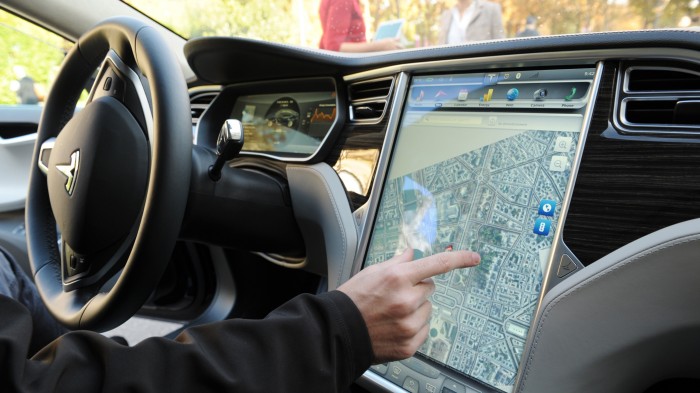Tesla’s Biggest Edge in Chasing Autonomy Is Treating Drivers Like Guinea Pigs
If Tesla wins the race to commercialize automated driving, it might have less to do with some technological edge than its crazy customers.
At the unveiling of Tesla’s sleek and “affordable” new car, the Model 3, Musk hinted that some “next level” features had yet to be revealed. This has led some to speculate that the Model 3 might be the first car equipped to hit the road with full autonomy. As the New Yorker explains, Tesla has some unique technological advantages in pursuing autonomy. These include a focus on low-cost video sensing rather than the more expensive (and accurate) laser sensors used by Google and most carmakers, and a remarkable amount of data contributed from ordinary Tesla drivers.
But there’s something else weighing heavily in Tesla’s favor: insanely devoted customers who seem to have a high tolerance for software updates that add experimental, and sometimes buggy, new features to their vehicles. I’ve lurked on Tesla message boards and interviewed a bunch of Tesla owners, and it’s amazing how tech savvy and enthusiastic they are.

This could prove very important as Tesla continues to roll out automated driving, which still doesn’t work perfectly. Indeed, some Model S cars already come with Autopilot, a system that lets the car drive itself for extended periods, providing it’s equipped with the correct sensors. But Autopilot is very much a beta product, and it requires constant supervision. And yet Tesla drivers hardly seem bothered by that, with many proudly posting videos online of their experiences testing it. If a company like Ford had released Autopilot for Fiesta drivers, it’s hard to imagine they would have reacted the same way.
As cars become increasingly computerized and connected, it’ll be interesting to see how far Tesla can leverage its customers’ desire to be on the bleeding edge, no matter how hair-raising it seems.
(Read more: The New Yorker, “10 Breakthrough Technologies: Tesla Autopilot," "Driver’s Push Tesla’s Autopilot Beyond Its Abilities,” ”Some Tesla Drivers Pimp Their Rides with Code,” ”Rebooting the Automobile”)
Keep Reading
Most Popular
Large language models can do jaw-dropping things. But nobody knows exactly why.
And that's a problem. Figuring it out is one of the biggest scientific puzzles of our time and a crucial step towards controlling more powerful future models.
The problem with plug-in hybrids? Their drivers.
Plug-in hybrids are often sold as a transition to EVs, but new data from Europe shows we’re still underestimating the emissions they produce.
Google DeepMind’s new generative model makes Super Mario–like games from scratch
Genie learns how to control games by watching hours and hours of video. It could help train next-gen robots too.
How scientists traced a mysterious covid case back to six toilets
When wastewater surveillance turns into a hunt for a single infected individual, the ethics get tricky.
Stay connected
Get the latest updates from
MIT Technology Review
Discover special offers, top stories, upcoming events, and more.